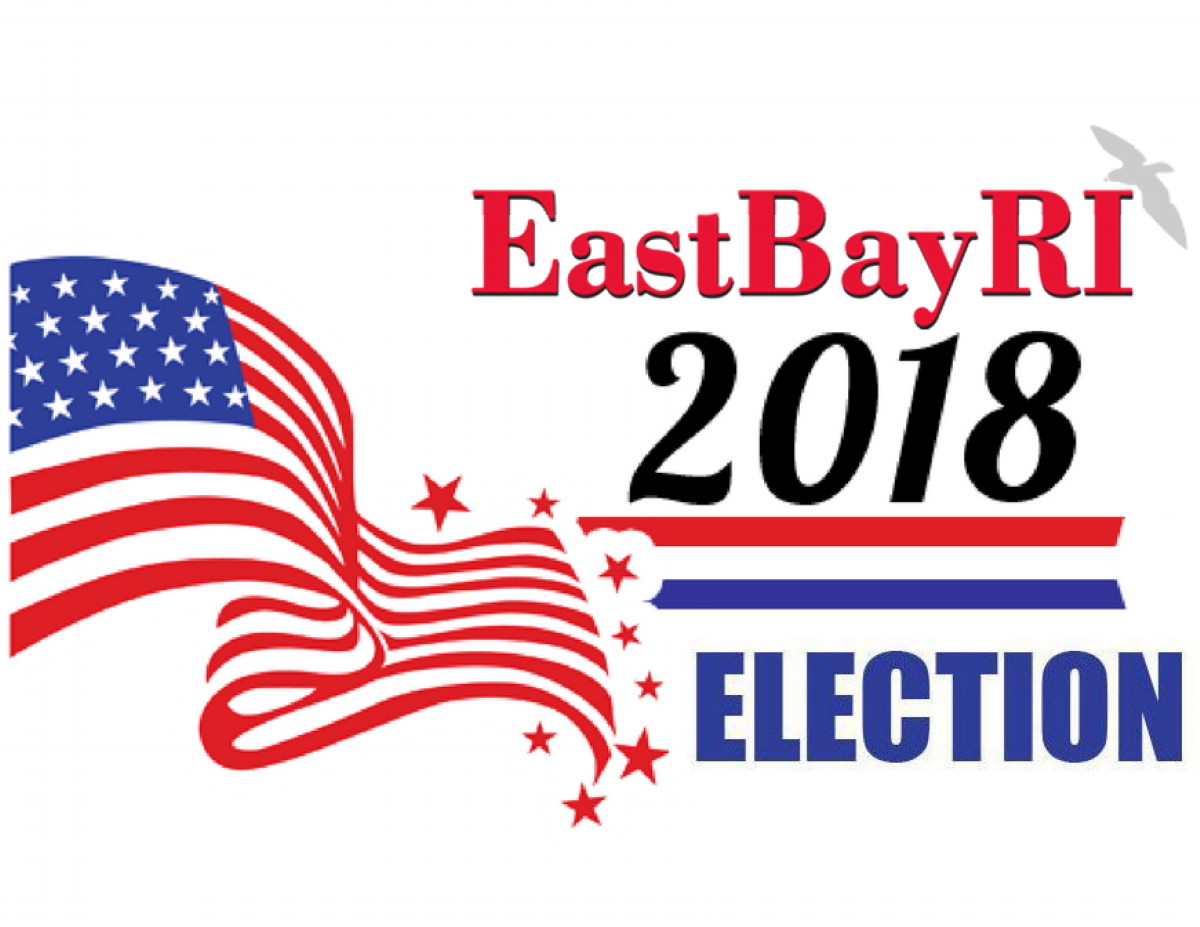- THURSDAY, APRIL 25, 2024
Portsmouth council candidates air ideas on relieving tax burden
Fifteen residents running for seven Town Council seats
PORTSMOUTH — We recently asked the 15 candidates running for Portsmouth Town Council the following question: “There’s been a lot of talk in recent years about the over-reliance …
This item is available in full to subscribers.
Please log in to continue |
Register to post eventsIf you'd like to post an event to our calendar, you can create a free account by clicking here. Note that free accounts do not have access to our subscriber-only content. |
Day pass subscribers
Are you a day pass subscriber who needs to log in? Click here to continue.
Portsmouth council candidates air ideas on relieving tax burden
Fifteen residents running for seven Town Council seats
PORTSMOUTH — The midterm election is this Tuesday, Nov. 6, and Portsmouth voters will see a crowded field of Town Council candidates on the ballot — 15 residents running for seven seats.
Read about the Portsmouth Town Council candidates' personal goals if elected.
We recently asked the council candidates the following question: “There’s been a lot of talk in recent years about the over-reliance on residential property taxes to finance the municipal budget. How should the town go about attracting new business in order to give taxpayers some relief, while still preserving Portsmouth’s rural nature that most residents seem to prefer?”
Their responses follow, in alphabetical order by the candidates’ last name.
Daniela Abbott (Democrat)
The first step should be to update our zoning ordinance so businesses that fit within the vision set forth in our new Comprehensive Plan are addressed in a straightforward way —avoiding the issues that we saw with the proposed “farm brewery” on Bristol Ferry Road. Businesses that have an agricultural tourism or farm-to-table model, or other creative ways to combine economic development and agriculture, should be embraced and welcomed into our community. Once an easier pathway has been established for this kind of business to get started, I believe more could follow.
I also believe we need to move away from so-called “spot-zoning,” and allow businesses that complement each other to develop organically in the same area. Encouraging the evolution of a town center that focuses on this agricultural tourism model would fit the character and feel that our residents love, while also providing the goods and services to which many of us would like to have access within our town.
Kevin Aguiar (Democrat)
The town is continuously seeking opportunities to enhance other revenue streams to offset the reliance on residential property owners. In recent years the town has successfully utilized town-owned assets such as Melville Campground, Seveney Sports Complex, Glen Farm, and the Glen Manor House to generate revenue.
During the past year we have seen some new businesses come into town that have caused some concern among citizens because the businesses are perceived to be changing the rural character of Portsmouth. The town’s current review process consisting of the Planning Board, Design Review Board and Zoning Board are in place to protect our community. The process allows for citizens to voice their opinions on petitions.
I feel the town has an opportunity through the update to the Comprehensive Community Plan to revisit the land use regulations within the town and clearly identify the types of new businesses that could be successful in town. I feel the Town Council’s recent decision to amend the zoning ordinance to allow an option for a Farm Brewery was a step in the right direction. This decision to modify our existing ordinance will provide an existing business an opportunity to expand while maintaining prime farmland that otherwise could have been lost to residential development.
Debra Cardoza (Republican)
New businesses are important to our economy and would do a great deal to relieve the weight carried by the taxpayers.
If you look around Portsmouth, there are a lot of new stores that are empty. So, what's the cause? Is this because of consumers’ needs, or is it the regulations and compliance requirements? Portsmouth’s application process should be streamlined to ensure we are attracting new businesses.
We have had numerous businesses under attack when considering Portsmouth and it is the residents that end up hurting them.
We should also be careful to stay within the residential zoning code that has already been established so residents are able to enjoy a quiet and high-quality life in our community’s neighborhoods.
Ray Davis (Democrat)
Start with doing a study of like communities who have dealt with this issue along with citizen input and professional guidance and then drawing up several options. This would entail a thorough accounting of public and private land availability for new business ventures both small and large as well as what type of impact any new business might have on the environment and landscape of Portsmouth.
A creative approach to attracting new business would include some areas we know are suitable such as the marine aspects in Melville and defense work, but also at promoting the arts here with a live performance area and other opportunities as well as looking at the historical value of Portsmouth that could be showcased and promoted.
Larry Fitzmorris (Republican)
Property taxes in Portsmouth have been for some time much too high. The residential property tax levy is $46.3 million and the commercial property tax levy is $4.8 million. Commercial properties provide our town many other advantages then taxes, such has jobs and convenience. I believe that any shift to commercial property taxation to relieve the residential levy would require at least doubling the commercial property, or doubling the tax rate. Doubling the rate would suppress commercial activity and is unwise.
While the town’s Economic Development Committee is actively engaged in recruiting new businesses, we are close to Massachusetts and our state is simply not competitive. Until the state’s hostile business climate is addressed by the Assembly, recruiting will not improve.
The primary cause of the growth of property taxes in Portsmouth is the growth in town spending.
Dave Gleason (Independent)
Streamlining the processes for establishing future businesses would be helpful and relocating the proposed Town Center on Quaker Hill to the lesser-traveled area of East Main Road, from Clements’ Marketplace to Reidy’s, is more logical.
A “new” Newtown, utilizing the newly improved sidewalks, could have better potential for walkable businesses.
Keith Hamilton (Republican)
Portsmouth has traditionally been and will continue to be a bedroom community. We are limited to the type of businesses we can support because we do not have the infrastructure to support larger industry. We need to work with our existing businesses to help them grow and attract new small businesses with our enterprise zone.
We also need to help support our great marine businesses in Melville with the development of the backyard. The comprehensive plan and following zoning update need to clearly separate out the allowable uses and create proper buffers.
Leonard Katzman (Democrat)
Attracting the kind of business Portsmouth residents want requires dual-track planning so that our zoning and design requirements (1) reflect the desires of Portsmouth residents and; (2) provide businesses with a streamlined defined process for their projects to make their move here easy. In addition to attracting businesses, we need talk about the state underfunding our schools.
R.I. law says the state and municipalities should equally share the cost of local education. Portsmouth receives nowhere near an equal share from the state, it is typically just about 10 percent. Portsmouth needs to band together with other similarly situated R.I. communities (there are quite a lot) and demand that the state honor its promise to properly fund local schools. That would dramatically reduce our reliance on property taxes.
Andrew Kelly (Democrat)
Residential property taxes are the major source of revenue financing the municipal budget, a situation not made any easier by cuts in state aid. I would join other councils to advocate for more support from the General Assembly. I favor business development that enhances our community’s character. Island Park is fast becoming a restaurant district and I’d like to see that expand by developing the Stone Bridge area.
We also need to focus on marine trades in Melville and seek opportunities on Navy land and court appropriate new retail options. I acknowledge these ideas will narrow but not close the gap between commercial and residential. During my tenure on the Portsmouth Economic Development Committee, we explored many ideas for closing that gap. I would support a re-launch of the PEDC's New Revenue Generation Subcommittee to explore new revenue sources and to look especially at options for the Coggeshall School building.
Paul Kesson (Republican)
This, in my opinion, is almost a misstatement of the problem. I don’t think the town can add business fast enough to solve this issue. The increases to the town budgets are the equivalent taxes of twice the taxes of the largest business. Even with incentives, enough businesses are not being attracted to Portsmouth to relieve the resident tax burden.
The best solution for Portsmouth is to strategically limit the size of government growth while maintaining our essential services.
Elizabeth Pedro (Republican)
I believe that Portsmouth is primarily a bedroom community, so we have to be very careful about zoning for businesses. The most difficult issues I’ve dealt with have been zoning issues.
One area to explore is historical tourism. Portsmouth is rich with historical sites, yet they are not well-marked or promoted. If our town assets are managed properly, they can become profitable. The Glen Manor House, Melville Campgrounds, Glen Park and the sports fields evidence this. I support continuing to update, preserve and maintain the historical buildings at the Glen so that they, too, may become profitable.
Jeffrey Richard (Republican)
As long as we are a septic community, no large business will come unless they plan to build their own sewage treatment plant. Small farms should be able to have secondary businesses to build income and create jobs. Small-tech companies can make it in Portsmouth with incentives available to them.
Peter Roberts (Independent)
Portsmouth has always been a rural community; however, we also already have businesses. We have one of the best markets in the state as well as convenience stores and plenty of restaurants. Other local businesses including contractors, childcare services, law offices, healthcare facilities, veterinarian services, retirement homes, auto repair and sales shops, nurseries, and farm stores call our town home.
Many of these businesses are owned or franchised by our Portsmouth neighbors. Short of having another businesses like Raytheon move to town and taking up open space, we have everything we could ever need right here at home. Bringing in other businesses wouldn’t alleviate the tax burden put on residents. All it would do is drive out our established businesses.
The only realistic way to take the burden off taxpayers is to eliminate frivolous spending by our local government. One example was the purchase of the old Bristol Ferry Landing. The council authorized the spending of just under $1 million for (what we were led to believe) was 5 acres, but it turned out to be only 1.5 acres because the rest is under water. Now, they want to spend $3 million to replace the wall around the property. This is one example of frivolous spending. If I’m elected I’ll help to stop it.
J. Mark Ryan (Democrat)
In Portsmouth, for every $1 million increase in assessed value you generate approximately $16,000. To raise an additional $500,000 for the budget, you would need an increase of approximately $31 million in assessed value. This would decrease the median residential tax bill by about $48.
Even if we were able to attract 50 more Dollar Generals to town, it would not shift the residential to commercial tax burden (currently approximately 89 percent to 11 percent) by even 1 percent. We should, therefore, work to attract businesses with the goal of creating good local jobs and making Portsmouth a more attractive and affordable place to live. More effective ways to reduce our residential property taxes would be for the state to reverse tax cuts to the wealthiest Rhode Islanders that shifted the tax burden to the middle class through increased property taxes and to send more money back to fund our schools.
Linda Ujifusa (Democrat)
Although gas stations and chain stores offer convenience and relatively low prices, they potentially threaten our town’s rural character and do virtually nothing to lift the tax burden off residential properties.
We need businesses in Portsmouth that offer good jobs and enhance our community so that residents and their children are able and willing to live and work here. We must act to keep and further develop such businesses including those related to farming, technology, defense, and the marine trades.
Keywords
Portsmouth Town Council, Election 2018Other items that may interest you



































